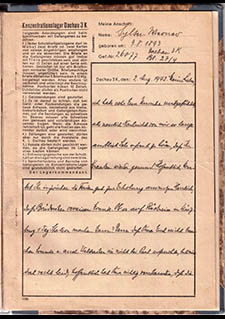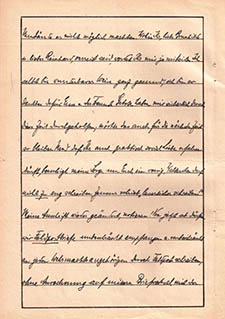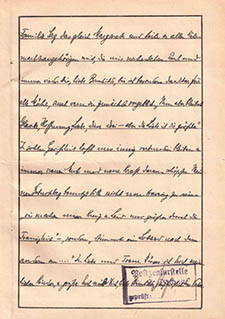Concentration Camp Internment and Murder
After his arrest by the Gestapo, Werner Sylten was first taken to the police jail on Alexanderplatz in Berlin where he remained in pretrial detention for three months. Without a trial having taken place at all, he was taken away to Dachau concentration camp on May 30, 1941 and confined to the “clergy block”. Heinrich Grüber had been held there, too, since September of 1941. Sylten was assigned to forced labor on the notorious “Plantation” where, at Heinrich Himmler’s order, moorland had to be farmed under inhuman conditions. Hundreds of prisoners lost their lives.
Sylten fell ill from a severe sunburn while performing forced labor in the summer of 1942 and had to be admitted to the sickbay. This was his undoing: As part of the euthanasia program “Special Treatment 14f13” in which prisoners unfit for work were killed as “unworthy of living”, Werner Sylten landed in one of the dreaded “transports of invalids” to Hartheim Castle near Linz where he was gassed. His relatives were notified that he had died as the result of meningitis on August 26, 1942. They received an urn with uncertain contents, which was buried in Berlin-Köpenick in November of 1942.
Werner Sylten corresponded with his family on a regular basis up until shortly before his murder. In his letters, he refrained from lamenting his own fate and endeavored to comfort family members and strengthen their faith. Even in his last letter of August 2, 1942, he attempted to impart hope grounded in Christian faith to his family. After his death, his friends ensured that the custody of his two sons was given to a member of the church council of the congregation in Berlin-Köpenick, who left the care of the children to Brunhilde Lehder. Her marriage with Werner Sylten, which the National Socialists denied, was legitimated after the war and she received a widow's pension from the Thuringian church government.
Source / title
- © Private collection of Walter Sylten, Berlin



